Filter by
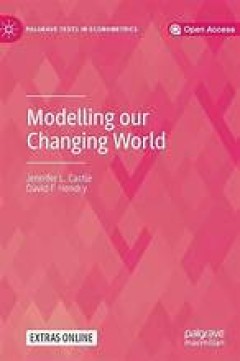
Modelling our Changing World
This open access book focuses on the concepts, tools and techniques needed to successfully model ever-changing time-series data. It emphasizes the need for general models to account for the complexities of the modern world and how these can be applied to a range of issues facing Earth, from modelling volcanic eruptions, carbon dioxide emissions and global temperatures, to modelling unemployment…
- Edition
- 1
- ISBN/ISSN
- 978-3-030-21432-6
- Collation
- -
- Series Title
- Palgrave Texts in Econometrics
- Call Number
- XIX, 128
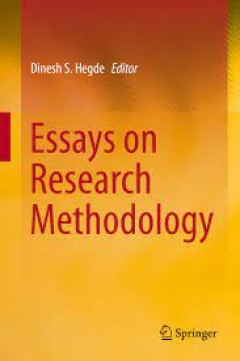
Essays on Research Methodology
The book presents a collection of essays addressing a perceived need for persistent and logical thinking, critical reasoning, rigor and relevance on the part of researchers pursuing their doctorates. Accordingly, eminent experts have come together to consider these significant aspects of the research process, which result in different knowledge claims in different fields or subject areas. An at…
- Edition
- 1st Edition
- ISBN/ISSN
- 978-81-322-2214-9
- Collation
- 43 b/w illustrations
- Series Title
- -
- Call Number
- -
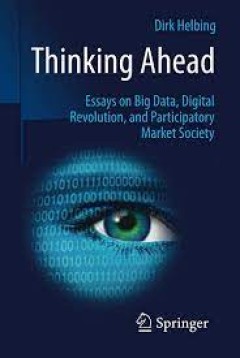
Thinking Ahead - Essays on Big Data, Digital Revolution, and Participatory Ma…
The rapidly progressing digital revolution is now touching the foundations of the governance of societal structures. Humans are on the verge of evolving from consumers to prosumers, and old, entrenched theories – in particular sociological and economic ones – are falling prey to these rapid developments. The original assumptions on which they are based are being questioned. Each year we pro…
- Edition
- -
- ISBN/ISSN
- 978-3-319-15078-9
- Collation
- -
- Series Title
- -
- Call Number
- -

The Theory of New Classical Macroeconomics A Positive Critique
This book examines new classical macroeconomics from a comparative and critical point of view that confronts the original texts and later comments as a first dimension of comparison. The second dimension appears in a historical context, since none of the new classical doctrines can be analyzed ignoring the parallelism and discrepancies with the theory of Keynes, Friedman or Phelps. Radicalism o…
- Edition
- -
- ISBN/ISSN
- 978-3-319-17578-2
- Collation
- -
- Series Title
- -
- Call Number
- -

Great Nations at Peril
This book was prompted by the current, lingering financial crisis, which has its basis in the disorderly financial practices of the United States. These practices have resulted in an accumulated debt which now requires the United States to run financial policies at artificially low interest rates. In principle, these low interest rates should flood the markets with ready money. Since the spread…
- Edition
- -
- ISBN/ISSN
- 978-3-319-10054-8
- Collation
- VII, 172
- Series Title
- -
- Call Number
- 330 GRE
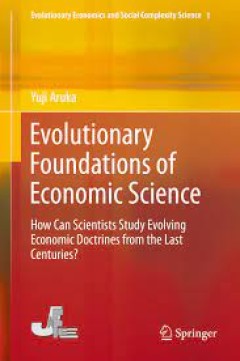
Evolutionary Foundations of Economic Science How Can Scientists Study Evolvi…
This book aims to discern and distinguish the essential features of basic economic theories and compare them with new theories that have arisen in recent years. The book focuses on seminal economic ideas and theories developed mainly in the 1930s to 1950s because their emergence eventually led to new branches of economics. The book describes an alternative analytical framework spreading through…
- Edition
- -
- ISBN/ISSN
- 978-4-431-54844-7
- Collation
- 78 b/w illustrations, 24 illustrations in colour
- Series Title
- -
- Call Number
- -

Ethics, Economics and Social Institutions
The book highlights the ethical aspects and issues that are inherent to economics in the context of today’s prominent social institutions. It reviews a range of problems concerning dominant social institutions, namely markets, government agencies, corporate entities, financial networks, and religious systems. Further, in each case, the book takes a detailed look at the economic problems as th…
- Edition
- -
- ISBN/ISSN
- 978-981-10-0899-3
- Collation
- 4 illustrations in colour
- Series Title
- -
- Call Number
- -
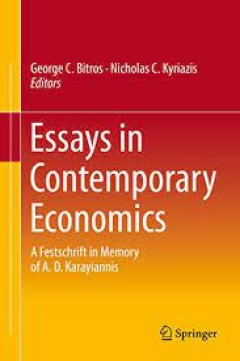
Essays in Contemporary Economics A Festschrift in Memory of A. D. Karayiannis
This book is a collection of original essays grouped into four parts under the headings “Greece and European integration,” “Issues in the Methodology of Economics,” “Institutions and the Free Market Economy,” and “Insights for Today from Ancient Greece.” The essays appeal to both researchers in the corresponding fields of knowledge and also to policy makers who are looking for i…
- Edition
- -
- ISBN/ISSN
- 978-3-319-10043-2
- Collation
- 3 b/w illustrations
- Series Title
- -
- Call Number
- -

Suspicions of Markets
In this work, Rutherford reviews why Adam Smith, Hayek, Mises and others praised economic markets, with a view to understanding, in contrast, historical attacks on markets dating as far back as Aristotle. The market has long been criticized as an inappropriate method of allocation, encouraging market participants to misbehave for the sake of personal gain, and creating an impersonal new market …
- Edition
- -
- ISBN/ISSN
- 978-3-319-40808-8
- Collation
- VI, 194
- Series Title
- -
- Call Number
- -
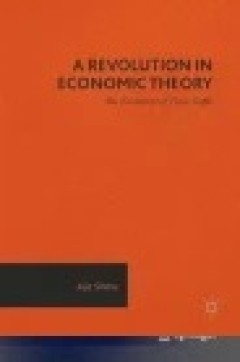
A Revolution in Economic Theory: The Economics of Piero Sraffa
This book draws on the work of one of the sharpest minds of the 20th century, Piero Sraffa. Ludwig Wittgenstein credited him for 'the most consequential ideas' of the Philosophical Investigations (1953) and put him high on his short list of geniuses. Sraffa's revolutionary contribution to economics was, however, lost to the world because economists did not pay attention to the philosophical und…
- Edition
- -
- ISBN/ISSN
- 978-3-319-30616-2
- Collation
- XVII, 244
- Series Title
- -
- Call Number
- 330 SIN r
 Computer Science, Information & General Works
Computer Science, Information & General Works  Philosophy & Psychology
Philosophy & Psychology  Religion
Religion  Social Sciences
Social Sciences  Language
Language  Pure Science
Pure Science  Applied Sciences
Applied Sciences  Art & Recreation
Art & Recreation  Literature
Literature  History & Geography
History & Geography